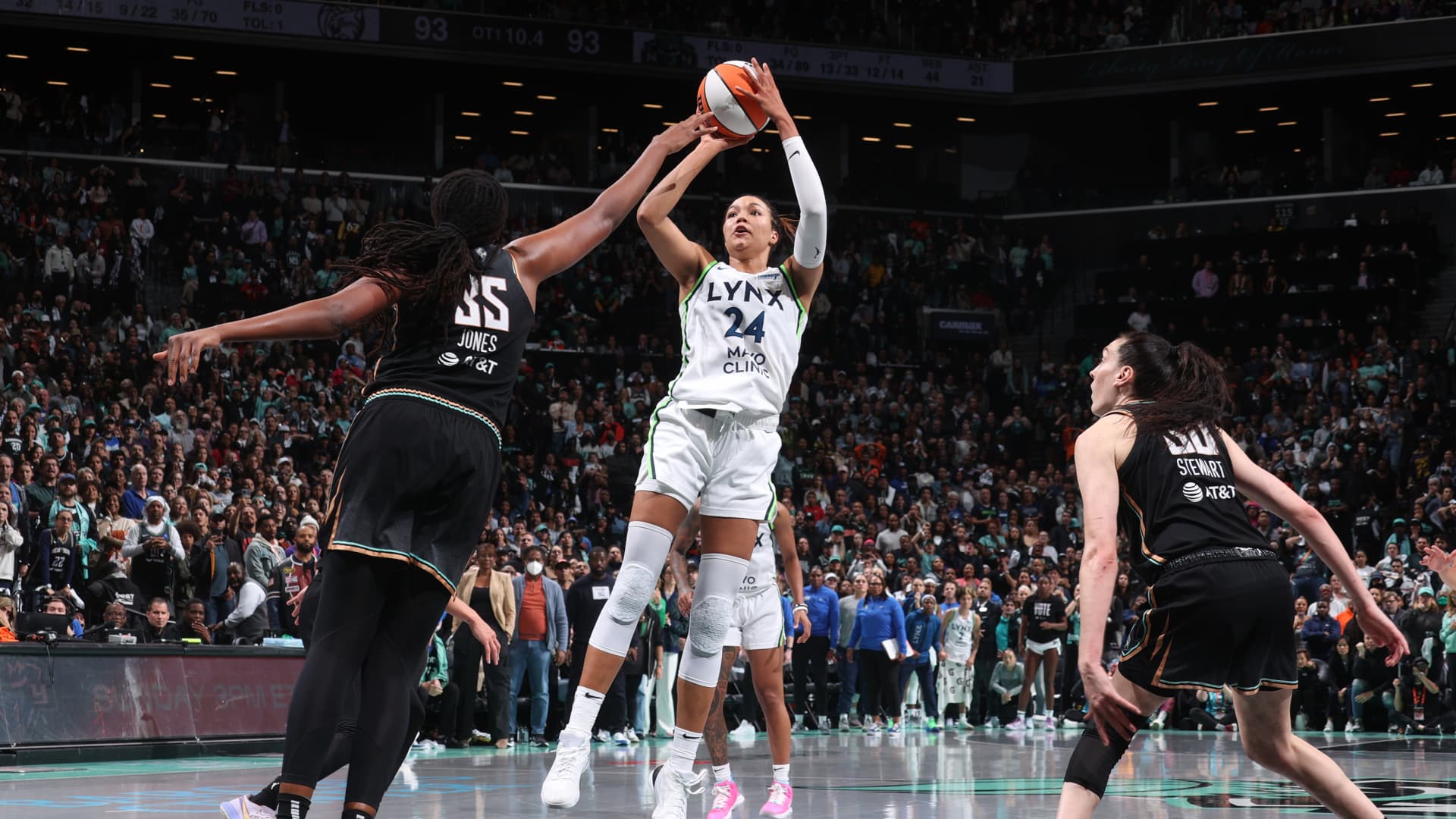The Women’s National Basketball Association (WNBA) is embarking on a transformative journey that promises to redefine the landscape of women’s professional basketball in the United States. The league’s recent announcement to expand from 15 to 18 teams by 2030, with new franchises in Cleveland, Detroit, and Philadelphia, marks a significant milestone. This strategic move is not merely about increasing the number of teams but also about solidifying the WNBA’s presence in key urban markets with rich basketball traditions. The expansion reflects a broader commitment to growing women’s professional sports and ensuring their sustainability.
The expansion plan is meticulously designed to unfold over five years, with each new team joining the league at different intervals. Cleveland will become the 16th team in 2028, followed by Detroit in 2029, and Philadelphia in 2030. Each city offers a unique blend of basketball heritage, economic potential, and demographic diversity, making them ideal candidates for this expansion. Cleveland, known for its passionate sports fanbase and the Cleveland Cavaliers’ NBA legacy, will leverage existing infrastructure by playing in an NBA arena. This approach ensures immediate access to a well-established sports ecosystem, which can help the new franchise integrate smoothly into the local sports culture.
Detroit, with its deep-rooted sports culture and ongoing urban revitalization efforts, presents another promising market. The city’s commitment to sports and community development makes it an attractive location for a WNBA team. Detroit’s new franchise will also utilize an NBA arena, benefiting from the existing facilities and fanbase. Philadelphia, on the other hand, is set to inaugurate a new arena around the time of its WNBA team’s debut. This investment underscores the city’s ambition to become a premier market for women’s basketball. The new arena will not only enhance the game-day experience for fans but also serve as a symbol of Philadelphia’s dedication to supporting women’s sports.
The selection of Cleveland, Detroit, and Philadelphia as expansion cities is a testament to the WNBA’s strategic vision. These cities are not only historic basketball hubs but also offer substantial metropolitan areas with diverse populations. The rich basketball traditions in these cities, from NBA and college levels, provide a solid foundation for the new franchises. The existing fan enthusiasm and cultural appreciation for basketball in these markets will be instrumental in driving the success of the new teams. Additionally, the economic and demographic factors in these cities support sustainable team growth, attracting corporate sponsorships, local media attention, and community engagement.
The expansion also holds significant implications for women’s sports and gender equity initiatives. These cities have shown increasing support for women’s sports, reflecting a cultural readiness that suggests WNBA teams will resonate well with local values and social movements. The new franchises will not only provide more opportunities for female athletes but also serve as catalysts for community pride and economic benefit. The WNBA’s expansion is poised to strengthen the relationship between professional sports and urban renewal, fostering inclusive and sustainable sports communities.
The impact of this expansion on the WNBA and women’s basketball is profound. With more teams, the league will offer increased opportunities for emerging talent to play professionally, gain visibility, and develop their careers. The broader fan base attracted by the new cities will enhance overall league revenue and visibility, leading to better salaries, improved facilities, and heightened player welfare. The expansion will also intensify competition, raising the league’s profile and the quality of play. New rivalries and dynamic matchups will captivate fans and elevate the WNBA’s status as a premier professional sport.
Moreover, the expansion is expected to attract more corporate partners eager to align with a socially progressive and fast-growing league. Media rights deals will benefit from a wider footprint and more content, fueling broadcasts and digital engagement. The WNBA’s growth will not only enhance its competitive landscape but also embed it more deeply into America’s sporting fabric. The league’s evolution exemplifies how strategic expansion can revitalize league dynamics and foster inclusive, sustainable sports communities.
However, the path to expansion is not without challenges. The WNBA will need to carefully navigate logistics such as competitive balance, market saturation risks, facility and operational readiness, and economic viability. Integrating new teams while maintaining league competitiveness requires a well-managed expansion draft and salary cap adjustments. Ensuring sustained fan interest amid a crowded sports landscape demands savvy marketing and community outreach. The financial backing of the new franchises, with expansion fees reportedly setting new records, highlights the importance of balancing initial investments with long-term sustainability.
Looking ahead, the WNBA’s expansion into Cleveland, Detroit, and Philadelphia signals a bold vision for the league’s growth. By leveraging cities steeped in basketball culture and emerging urban vitality, the WNBA is not only increasing its competitive landscape but also embedding itself more deeply into America’s sporting fabric. This expansion enhances opportunities for female athletes, broadens fan engagement, and further legitimizes women’s basketball as a premier professional sport. As these teams prepare to take the court in the coming years, the league’s momentum suggests an exciting era ahead, marked by greater visibility, diversity, and shared passion for the game.
The next five years will offer a compelling story of growth, competition, and cultural impact destined to redefine the future for women’s basketball. The WNBA’s strategic expansion is a testament to its commitment to growing women’s professional sports and ensuring their sustainability. The league’s evolution exemplifies how strategic expansion can revitalize league dynamics and foster inclusive, sustainable sports communities. The WNBA’s journey towards 18 teams by 2030 is not just about growth in numbers but also about cementing women’s professional basketball on a stronger foundation, ensuring its place in the hearts of fans and the broader sports landscape.

